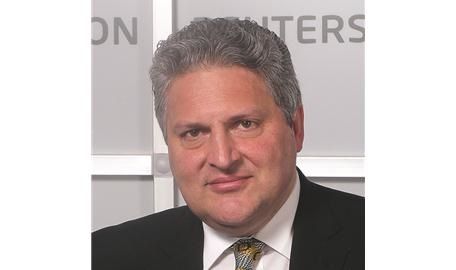TO DUBLIN, WHERE 1,000 people signed up to attend the International Capital Market Association’s annual conference. That’s a record, by all accounts. What’s now called ICMA has been going since 1969 and people fondly recall the former Association of International Bond Dealers annual jamborees. These days, the event is a more thoughtful and serious affair and it’s become one of the highlights of the capital markets calendar.
It was Spencer Lake’s first meeting as ICMA chairman; he did a great job of handling on-stage continuity and moderating a panel on developments in global capital markets. I think he had a ball. As well as offering a fabulous networking opportunity for market practitioners, the conference has become a meeting point for bankers, market participants, policymakers, regulators and central bankers. In the complex and confusing environment we live in, the intelligence everyone can glean from such interactions is invaluable.
Ugo Bassi, director of financial markets at the European Commission, gave an update on Capital Markets Union in his inaugural speech in that role, while Steven Maijoor, chairman of the European Securities and Markets Authority, provided an update on ESMA’s priorities. Irish minister of finance Michael Noonan, and central bank governor Philip Lane kicked off the event with updates on the state of play and priorities in Ireland.
Dublin gives every impression of being a city back on its feet and throwing off the after-effects of the recent economic crisis and bailout. Construction is on the rise once again (including the central bank’s own new city-centre building at North Wall Quay, which had been on hold), auto sales are in full recovery mode, and Dublin property prices continue to head north. Mind you, while the story is clearly improving, Dubliners are anxious about lessons having been learned and that a policy framework will be in place to curb any tendencies to let the recovery turn back into a repeat of the speculative boom that ended up bankrupting the banking sector and causing severe pain for Irish taxpayers.
The welcome reception was held in the beautiful setting of the Irish Museum of Modern Art in the Royal Hospital Kilmainham, founded in 1684 as a home for retired soldiers. The reception at the end of the first day of the conference was in the Guinness Storehouse at the world-famous St James’s Gate brewery. Live Irish music, drummers, fire-eaters; we had it all. And Guinness did flow …
Guinness flowed, too, in the bars and pubs of the Temple Bar area, but I can neither confirm nor deny reports that I was seen dancing to Irish folk music until late into the night and went back to my hotel by horse and cart because I couldn’t find a taxi.
ON THE AFTERNOON before the ICMA AGM and conference, I moderated IFR’s inaugural Primary Markets Conclave, a closed-door thought-leadership session with half a dozen members of ICMA’s Primary Markets Practices Committee chaired by BNP Paribas’ Martin Egan. The International Primary Market Association merged with the AIBD as far back as 1992 but retains more than a vestige of its former self: the primary markets practices committee numbers almost 50 members.
In a great but rapid-fire session, we ran through the issues on the committee’s agenda, which I figured was a great way of short-circuiting the noise and getting to the heart of the issues on the minds of the wider primary bond market participants. We chatted about the impact of ECB monetary policy actions, if and how zero/negative yields change the fundamental market dynamic, liquidity, the role of syndicate in today’s new world and the market outlook. I’ll be producing a summary of the comments in IFR’s forthcoming Top 250 Borrowers special report so I won’t spoil the surprise now.
ICMA had kindly invited me to moderate a panel session on the first day of the conference. I and my panellists were somewhat daunted by the sheer breadth of our topic, “The Role of Debt and its Legacy”, but the fine and distinguished panel (Nariman Behravesh, chief economist of IHS; Brian Coulton, chief economist of Fitch Ratings; Donal Galvin, head of treasury at Allied Irish Banks; and Charles Goodhart, Emeritus Professor of Banking & Finance, London School of Economics) gave it a spirited and thorough going-over.
On a serious point, I am a big supporter of the ICMA and the work it does. Markets are changing rapidly and the capital markets need an organisation that steers clear of out-and-out lobbying – there are plenty of other organisations that do that – to focus squarely on matters of promoting market standards and practices in the quest to build a body of sensitive and coherent self-regulation that helps shape and works alongside the regulatory discourse.
I have been exhorting ICMA for some time now to adopt a more assertive role – not to act as some sort of ersatz regulator but certainly to take a bigger role in dictating outcomes, perhaps in a hardening of its current approach. I chatted on the sidelines of the conference to ICMA representatives and I understand the organisation is at pains to steer clear of playing regulator but it has the benefits of being a market body supported by the full market ecosystem.
It’s important to establish proper market legitimacy in these difficult times, in terms of orienteering and marshalling the capital market towards positive outcomes. That legitimacy should, in my opinion, reside with ICMA as it heads towards its 50th anniversary.
